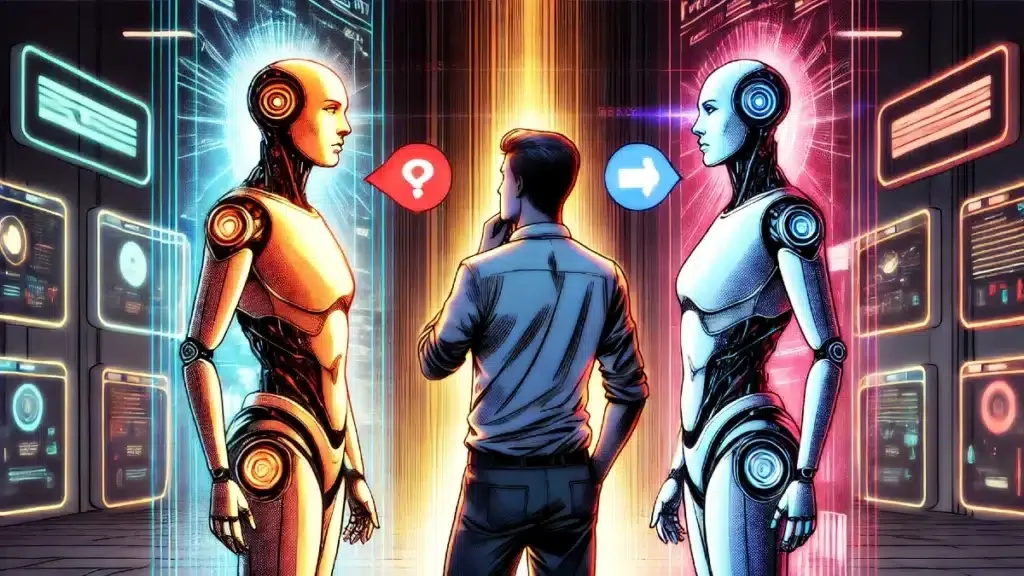AI: Friend, Foe, or Frenemy?
Is artificial intelligence our friend, foe, or frenemy? I’m asked that question weekly when the topic of AI comes up. What should we do? When should we do it? Can’t we just unplug it like a toaster?
At the end of the day, AI is the best friend you never knew you were missing. And once you start using it, you wonder how you ever lived without it. It helps you write emails, reports, and, ahem… your homework if you’re in school or university. The level of productivity and the speed at which we’re becoming accustomed to these systems is truly impressive.
What was once the realm of science fiction or magic is now available to anyone with a phone—and, if needed, a credit card. From generating realistic images and amazing music to producing videos from a simple prompt, the future is blending into real life faster than anyone has ever experienced. It’s pretty remarkable, if you ask me.
The Risk of Overreliance
As we start handing more and more tasks over to our new friend, there’s a real risk we begin to forget how to do the very things that made us special, valuable, and irreplaceable. I’ve been in meetings where I’ve had to say out loud that some people are becoming too dependent on AI for their work—and that it could make them less competitive in their jobs. Yes, I said that.
While the long-term concern is AI replacing entire professional sectors, the immediate issue I see is people forgetting how to do the very things that make them who they are in the job market and broader economy. Just like most of us would struggle to recall a phone number from memory like we did in the ’90s—or to do long division without a calculator—we may soon lose the ability to write clearly, be creative, solve complex problems, or reason deeply.
It may sound exaggerated, but changes like these happen gradually. We slowly forget how to do certain things like we used to—or at all. You’re not going to wake up one day in the coming months and forget how to do your job. But over time, you might find yourself struggling to do it without the help of this new friend that’s arrived in the past year and a half to assist us.
There’s also the fact that most companies building the most advanced AI tools we love are still far from profitable or self-sustaining. They need to raise a lot of money, regularly, just to fund operations—and if they can’t, things could get difficult. That means, while unlikely, the switch to your favorite AI could be turned off, leaving you to do your work solo. Again—likely no, possible yes. There will usually be alternatives, but the number of AI startups that no longer exist is massive.
The Power Is in Your Hands
I often point out in meetings and events: you don’t need to fear a future AI taking your job if you’re already self-automating the most critical parts of your mind—your critical thinking, your ideas, and your lived experiences. Each of us has the power to prevent our AI friend from becoming a frenemy, as we continue to shape our future alongside it. I mean, we love our friends, but we’d be pretty annoyed if they got a promotion instead of us—or worse, our job.
So this brings us to the big question: what should I do? How do I get the best out of using AI while still keeping my skills sharp? Great question. I suggest starting with three things. I kept it short so you can print it out and tape it to your desk, in case you hear the AI siren song whisper, “I can do that for you.”
Identify the most critical, high-impact part of what you do—and don’t turn those skills over to AI. Refine them with AI, sure, but don’t let the system do it for you.
Spot the least valuable, lowest-impact tasks in your work and find ways to optimize those with AI.
Be careful and honest with yourself when applying 1 and 2. There are no shortcuts to achieving what you want—especially when it comes to AI. It’ll do the work if you let it, but then it holds the value, not you.
Friend or Enemy?
So, back to the original question: should we run from our new AI friend or learn to coexist? Coexist, of course—but be aware of when your friend is spending too much time with you and taking over too much of your life. We don’t want to end up in a future where, without our toaster, we can’t toast bread on the pan because we forgot how. High flame for 10 minutes, right? We’d be left with burnt bread with butter, and coffee before work.
Let’s make sure we’re working in harmony with our new AI friend—preserving our most important skills (like perfect toast), creating original work, and standing out in our careers for what we bring to the table. That’s how we keep AI in the friend column.
Originally published in Spanish for Fast Company Mexico:
https://fastcompany.mx/2024/10/21/inteligencia-artificial-amiga-enemiga-amienemiga/

